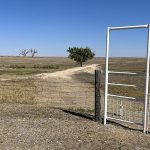
Cell phones and social media have become so tied up with our lives, it’s hard to unplug. Help visitors to your small town reconnect with nature, themselves and the moment. Photo CC0 by fgmsp on pixabay
Rural areas and small towns can tap the rising tourism trend of vacations from our phones. And new research shows ways to take advantage of the trend.
Lots of rural areas already have poor cell phone reception and slow broadband, so we might as well take advantage of it, right?
Philip Lovell Pearce and Li Jing at James Cook University in Australia wrote about unplugged travel in The Conversation. Their findings should help small towns anywhere better market to these tourists.
The research found many different names for these get-away-from-technology trips:
- digital detox holidays
- black hole resorts
- offline escape retreats
- dead zone holiday options
Mentioning these terms in your marketing may help you connect with people who are searching for vacations using these various phrases. Now this list has a decidedly Australian sound to me, so you might want to look for terms used in your own country like “off the grid vacations.”
What do travelers want from offline vacations?
Several years ago people just wanted to escape and de-stress, the researchers found. Now people are more likely to talk about also building skills that will help them be more connected with the moment even after they return to their regular life.
“Early indications suggest that couples and families use these experiences to learn to engage more fully with one another, undertake joint challenges,” the researchers said.
What skills could rural people teach uplugged visitors?
Get back to nature. Over 100 studies show that being in nature is good for you, body, mind and spirit. Rural communities have easy access to parks, recreation areas, forests, grasslands and every kind of nature you can think of.
Natural business offerings could include a huge range of activities:
- guided walks, hikes, tours and rides
- connection with animals at farms, petting zoos, or menageries
- survival skill training
- “glamping” or luxury camping
- summer camps for grown-ups and families
These activities are just brimming with chances to undertake joint challenges.
Bring familiar activities to rural settings. Goat yoga, anyone? Urban visitors may not know enough about your traditional activities to know they might love them. Start with something they know they like, and it might be easier to lure them in. Reframing activities they are already familiar with into your setting may make an easier transition, like yoga with goats. Instead of “bike ride” you could market an “outdoor spin class that moves.”
- yoga, massage in the open air
- exercise classes outdoors
- real-world versions of familiar exercises like rowing, cross country skiing
- bucking hay bales as weight training (add in the heat and humidity for fitness bonus points)
Honor your traditions. Every small town is a mix of culture and heritage. Connect people with the skills your grandparents spent a lifetime on. If there’s a prize for it at the fair, it just might be a good skill to teach visitors.
- canning, baking, preserving
- quilting, sewing, spinning, weaving, dyeing
- fishing, hunting, trapping
- farming, raising animals, gardening
- boating, kayaking
- shooting, archery
- singing, dancing, playing traditional music
If you personally oppose some of these such as shooting or hunting, please don’t be offended at their mention. They remain important traditional skills in some parts of the rural world.
These offline skills are great at bringing people into the current moment and engaging with other people.
Connect with people. All of the activities in these lists include the chance to connect with people, but you can also do more. The researchers mentioned people wanting to engage more fully with each other. This is where our small town friendliness can really shine. Consider adopting your visitors as temporary locals.
- serve them home cooked meals
- sit down for community meals together
- invite them to social activities, block parties, street dances
- bring them along to cheer at high school sports
- house them in home stays, AirBNBs or bunkhouses
- give them a role to play in performances, parades or special events during their stay
These connection events give you a bonus: they help build community among your locals as well as your visitors. Community happens when people talk to each other.
My lists reflect my prairie heritage, so I’d love to hear your thoughts. How could your community better connect visitors with the real world? What traditional skills are part of your culture?
New to SmallBizSurvival? Take the Guided Tour. Like what you see? Get our updates.
- About the Author
- Latest by this Author
Becky started Small Biz Survival in 2006 to share rural business and community building stories and ideas with other small town business people. She and her husband have a small cattle ranch and are lifelong entrepreneurs. Becky is an international speaker on small business and rural topics.










